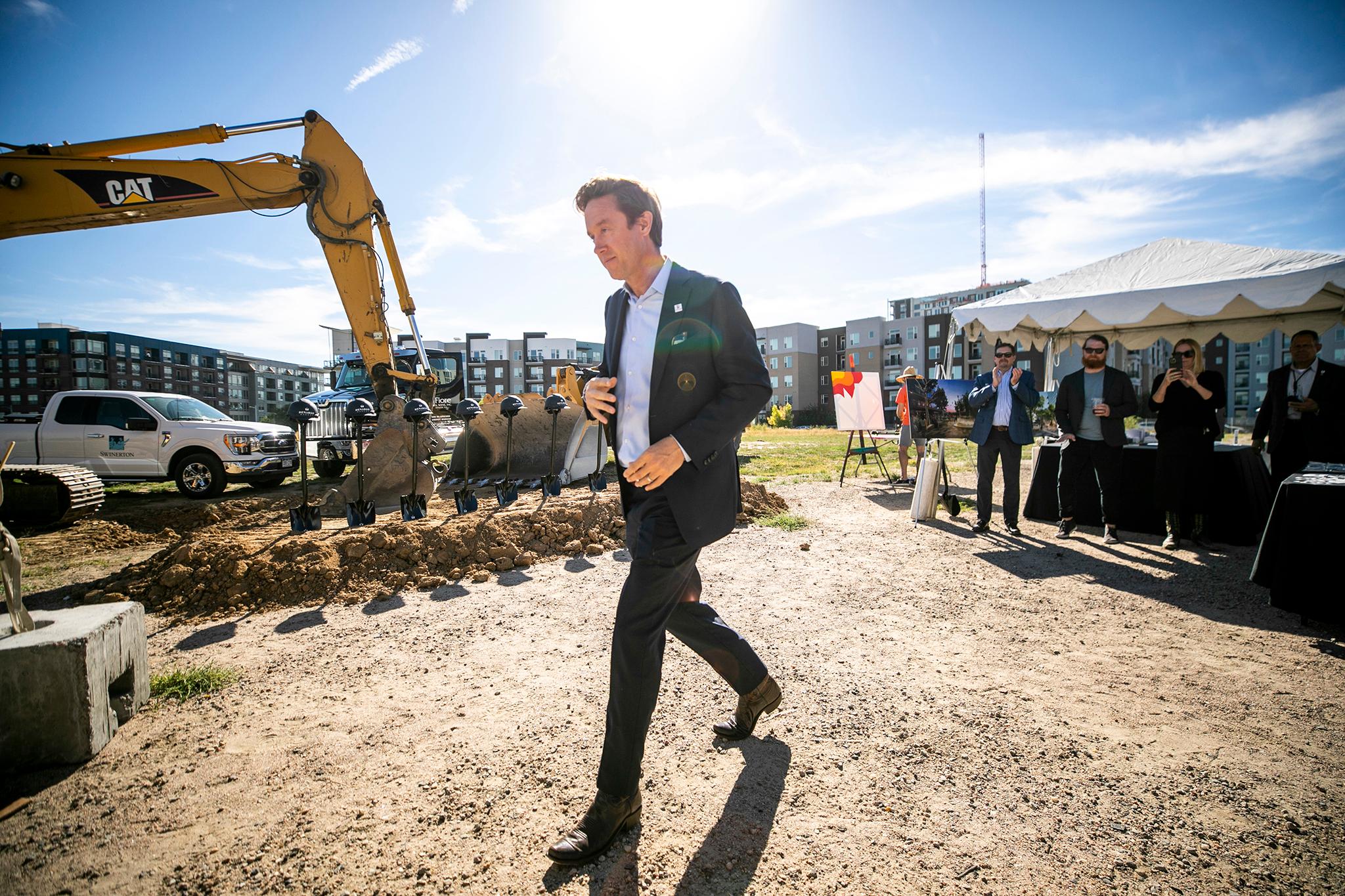Denver Mayor Mike Johnston wants voters to consider a .5 percent sales tax to raise $100 million a year to create and preserve 44,000 units of affordable housing and pay for housing support services over the next decade.
But first the measure has to make it through City Council, and that’s not guaranteed. So far, the bill hasn’t even made it out of committee.
Why? As written, it has too few details about how the $100 million-a-year sales tax would work and who it would serve.
On Wednesday, the proposal had its first hearing in the Safety, Housing, Education and Homelessness Committee. Twelve of the 13 councilmembers showed up to listen and ask questions.
Those included committee members Council President Amanda Sandoval of District 1, At-Large Councilmember Serena Gonzales-Gutierrez, District 2’s Kevin Flynn, District 3’s Jamie Torres, District 5’s Amanda Sawyer, District 10’s Chris Hinds and District 11’s Stacie Gilmore.
At-Large Councilmember Sarah Parady, District 4’s Diana Romero Campbell, District 6’s Paul Kashmann, District 7’s Flor Alvidrez and District 9’s Darrell Watson were also there to ask questions and offer comments.
District 8 Councilmember Shontel Lewis, a bill proponent, was the sole member not at the hearing.
At the end of a 90-minute meeting, the seven voting members unanimously decided to postpone their decision until the city hammered out more details.
"Mayor Johnston is committed to acting with urgency to address this issue at the scale it deserves, and has been working around the clock with the five council sponsors to ensure the ballot measure directly addresses our city's affordable housing needs," said Johnston's spokesperson Jordan Fuja, in a statement.
At the meeting, Housing Stability (HOST) head Jamie Rife detailed the city’s housing crisis.
Not surprisingly, her picture was bleak. More than half of Denver’s renters are housing-burdened, meaning they spend more than 30 percent of their income on rent.
Of those making less than $75,000 annually, 80 percent are housing-burdened.
A total of 21 percent of Denverites earning 60 percent of the area median income or less have left the city, she said.
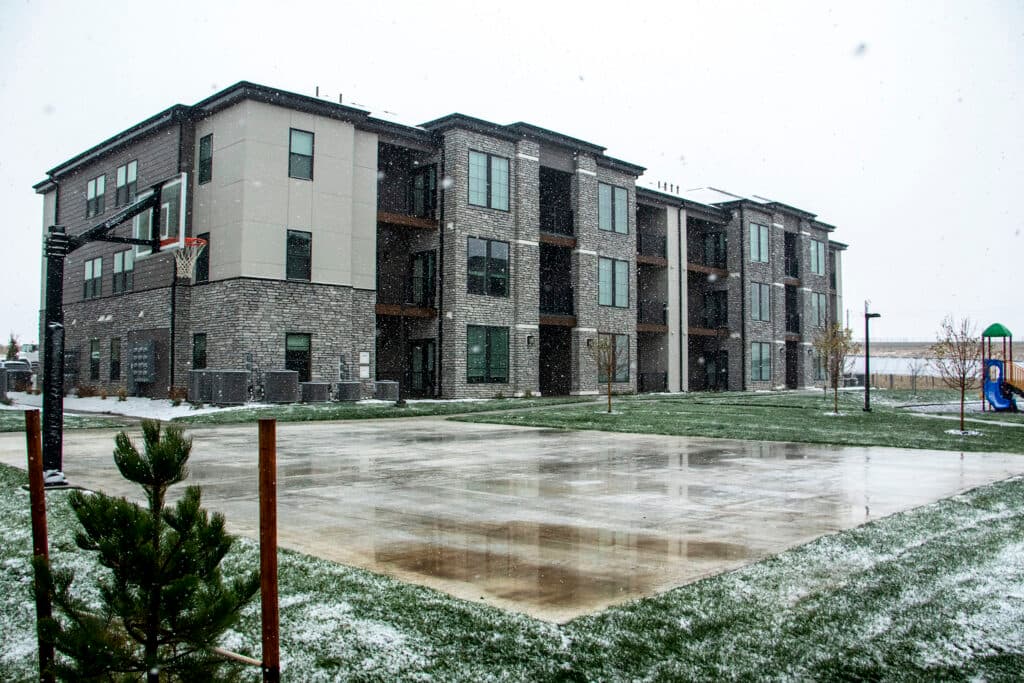
The area median income, the middle amount all households earn, is currently $91,280 for an individual and $117,360 for a family of three.
Rife said businesses are struggling to attract and retain employees, evictions are at record highs and housing costs are the top reason for homelessness. According to the Consumer Price Index, Denver's cost of rent has been outpacing that of San Francisco since 2010.
The cost of living has far outpaced earnings, according to Rife.
Back in 2000, Denver’s median household income was $40,000 and median home price was $165,800, with a $840 mortgage, Rife said. Median rent was $630 a month.
Then, household income was keeping pace with housing costs. That’s changed.
By 2022, median household income had more than doubled to $84,000. But the median home price had jumped to $520,000 with a $2,400 mortgage. Median rent was $1,870.
While income increased by 110 percent over those 22 years, housing costs increased by 218 percent.
The Colorado Health Foundation’s recent Pulse Poll showed that 90 percent of Denverites now view housing affordability as a serious issue.
Intervention, she said, is urgently needed.
Here’s how Rife said the tax would work.
Council would send a measure to voters in November. If approved, shoppers would be charged a 5 cent per $10 purchase. The city would not collect the tax on essential items like food, medicine, fuel and feminine hygiene products.
Of that sales tax, 35 percent would be paid by visitors.
The measure was written “to be nimble enough to respond to market conditions and other unanticipated factors,” Rife explained.
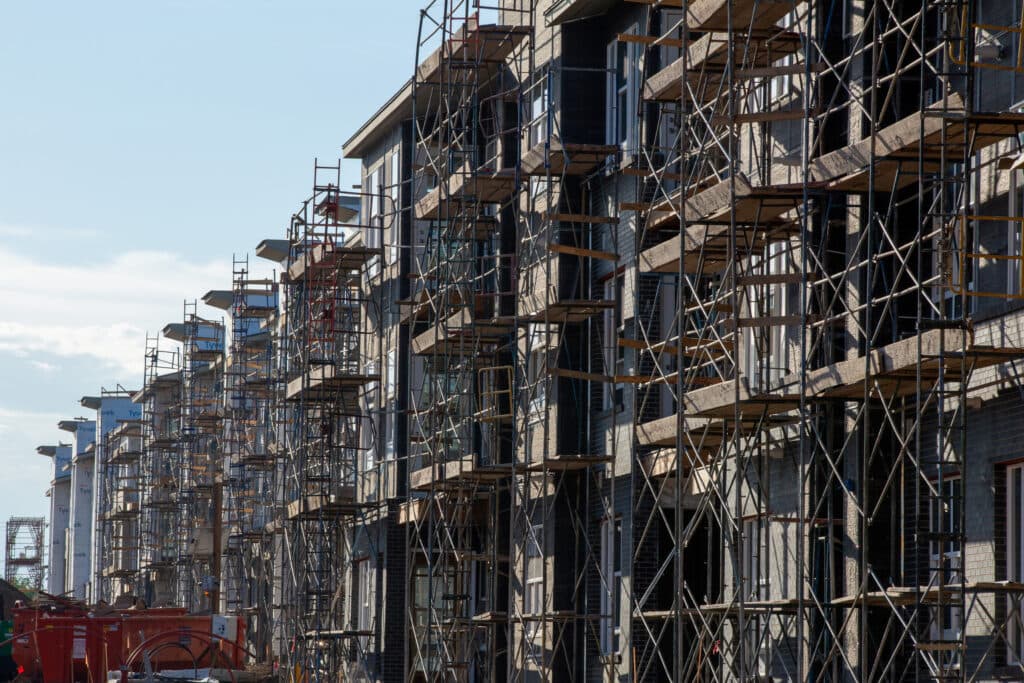
The fund would do the following, according to the presentation:
- Increase the supply of affordable housing units, for both renters and homeowners, through production, preservation, financing, acquisition or any other method.
- Provide financial and service-related assistance to renters and other person in need of housing.
- The city would offer housing vouchers and subsidies, fund the acquisition of low-income rentals and the construction of accessory dwelling units, provide gap financing to affordable housing developers, provide down payment assistance and pay for deed restrictions and land trusts.
“While comprehensive, this list is not meant to be exhaustive,” the presentation stated.
Here’s how the ballot language is currently written.
Shall Denver sales and use taxes be increased $100 million annually, commencing January 1, 2025, and by whatever additional amounts are raised annually thereafter, to expand affordable housing for low- and middle-income families and individuals, through a one-half of one percent (0.5%) sales and use tax increase (5 cents on a $10 purchase), to support efforts including:
- Providing more affordable rental housing and reducing rent, and
- Providing more affordable homes for purchase and programs to reduce the cost of buying a home.
And may a portion of the annual revenues derived from this increase be spent on administrative costs for the above purchases, and shall the revenue and earnings on this tax be collected and spent as a voter-approved revenue change and an exception to the limits that may otherwise apply under Article X, Section 20 of the Colorado Constitution or any other law?
That draft was written to be ‘nimble.’ But it left a lot of questions unanswered.
What segment of the economy would benefit from the affordable housing fund?
“Does anywhere in the language define affordability?” Kashmann asked. “I’m not seeing that as far as even a range of [area median income] levels.”
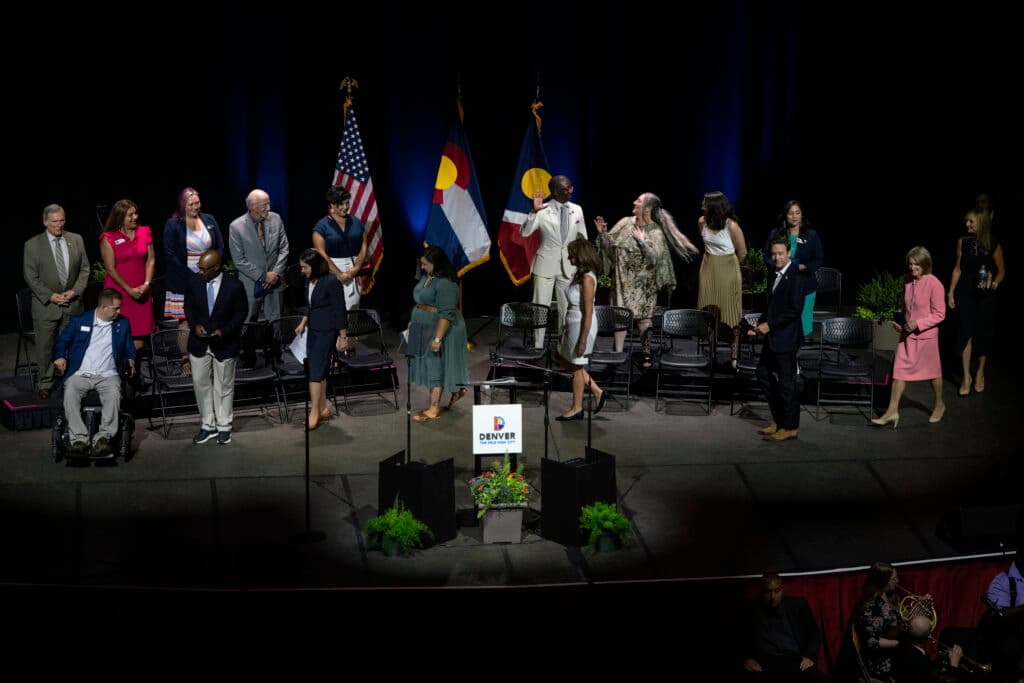
How does the measure define “low” and “middle” income families? How much money would go to each group? Would there be a sunset provision or would the tax be levied indefinitely?
“I think that for a hundred million dollars a year in perpetuity, there needs to be some guardrails,” Sawyer said.
The details, Rife explained, would be decided months after voters passed the measure — assuming they do.
HOST and the Department of Finance would draft a first-year plan by Jan. 31, 2025. That would be a full month after the city started levying the tax and had access to funds.
Along the way, the city would take public input. And in future years, HOST would make the decisions as part of its annual action plan.
The fund itself would be administered by the Department of Finance. If money wasn’t used, it would stay in the fund for future years. Any interest earned would go back to the fund.
HOST would track progress on how many units had been financed, constructed, acquired or preserved. The department would publish regular reports.
How many sales taxes is too many sales taxes?
Flynn raised concerns about how much Denver is spending to fill the gap between what residents can afford and the price of rent and housing.
“For us to find ways to help feed that beast, there’s no way that housing costs ever mitigate,” he said. “They stabilize because we keep coming up with more money to meet those increases. That phenomenon sort of worries me.”
Flynn also raised concerns about how much Denverites have been taxing themselves with sidewalk, trash collection and stormwater fees.
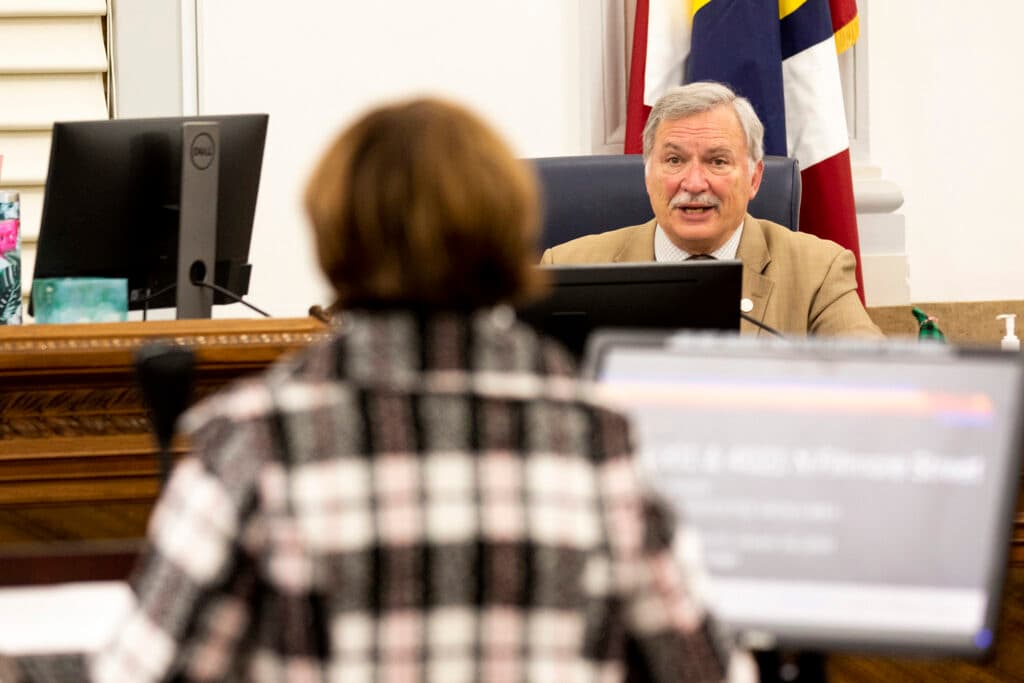
“How many new added fees and tax increases does it take to make us affordable?” he asked. “That strikes me as counterintuitive. And so I wonder, where does it end?”
Torres said she’d vote against the measure if it didn’t specify that the money would be used to support those making 60 percent of the area median income or less.
“The urgency in permanent housing is 60 percent and below, and that is where I'm stuck,” Torres said. ‘So if this doesn't have that, and it doesn't have it today, I’m a ‘No.’”
City Council has roughly a month to make a decision on whether to send the measure to the voters.
"We know that the longer we wait the more expensive it will be to address Denver's housing crisis, which is why we will continue to partner with Council to finalize the most effective ballot measure possible," wrote Johnston's spokesperson Fuja. "And then we must ensure we place the measure on the November ballot so voters have the opportunity to make their voice heard on this critical issue."
For that to happen, the committee would need to pass the bill by Aug. 14.
The bill would need to be read first by the council on Aug. 19 and passed on Aug. 26. The public would have a chance to comment during the full Council meeting.
The committee has given itself two weeks for the measure’s proponents to answer their questions and craft a bill that it will recommend to the Council for a vote.
If Council approves the measure, voters will weigh in during the November general election.
Update: This story has been updated with comment from the mayor's office.

